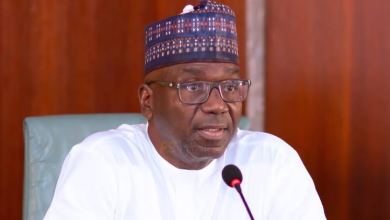Nigerians Lament Rising Bank and Telco Charges Amid Failed Transactions

Nigerians Lament Rising Bank and Telco Charges Amid Failed Transactions
Commercial banks in Nigeria are leveraging telecommunications platforms to generate billions in revenue, capitalizing on the growing adoption of digital banking. However, customers are increasingly frustrated with excessive service charges, failed transactions and unexplained deductions.
Many banks impose fees exceeding the official guidelines, including electronic money transfer charges, annual debit card maintenance fees and processing fees ranging from three to five percent for cash withdrawals beyond cashless policy limits.
Additionally, customers report frequent deductions for SMS alerts, loan management fees and even unexplained “outstanding fees,” leading to widespread dissatisfaction.
Social media platforms have become a battleground for frustrated customers, with many sharing their experiences of failed transactions. Complaints about unauthorized deductions for airtime and data purchases, as well as high exchange rates for international transactions, have surged.
Consumer advocacy groups, such as the Consumer Advocacy Foundation of Nigeria (CAFON), have previously protested excessive banking charges by declaring March 1 as “No Banking Day,” urging customers to boycott banking services for a day to push for reforms.
Industry data reveals that over 700,000 complaints were lodged against banks in the past six months, highlighting the growing discontent among Nigerians.
Adenike Abiola, a bank customer, shared her ordeal:
“The Telco and bank have been tossing me around. No one wants to take responsibility for the transaction. The bank says it was successful and the telco says they never got the money.”
Similarly, Michael Adetayo expressed his frustration over excessive exchange rate charges on his Facebook page:
“It’s a debit card, not a credit card. So, the rate on the day of purchase should apply. After all, if the rate had been N1,800 to the dollar yesterday, my buying decision could have been way different or I could have used a different payment platform.”
Read also: Umahi: Northeast Included in Tinubu’s Legacy Projects Amid Senate Concerns
Other customers, such as Maureen Akaeze and Yvonne Imafidon-Agarana, have also voiced concerns over inflated forex transaction rates and high withdrawal fees on domiciliary accounts.
Financial analysts suggest that banks hedge against exchange rate fluctuations by holding excess funds from customer transactions, but many fear these excess charges are not refunded.
With rising concerns over arbitrary fees, Nigerian banking customers continue to seek transparency and fairness in financial services.












